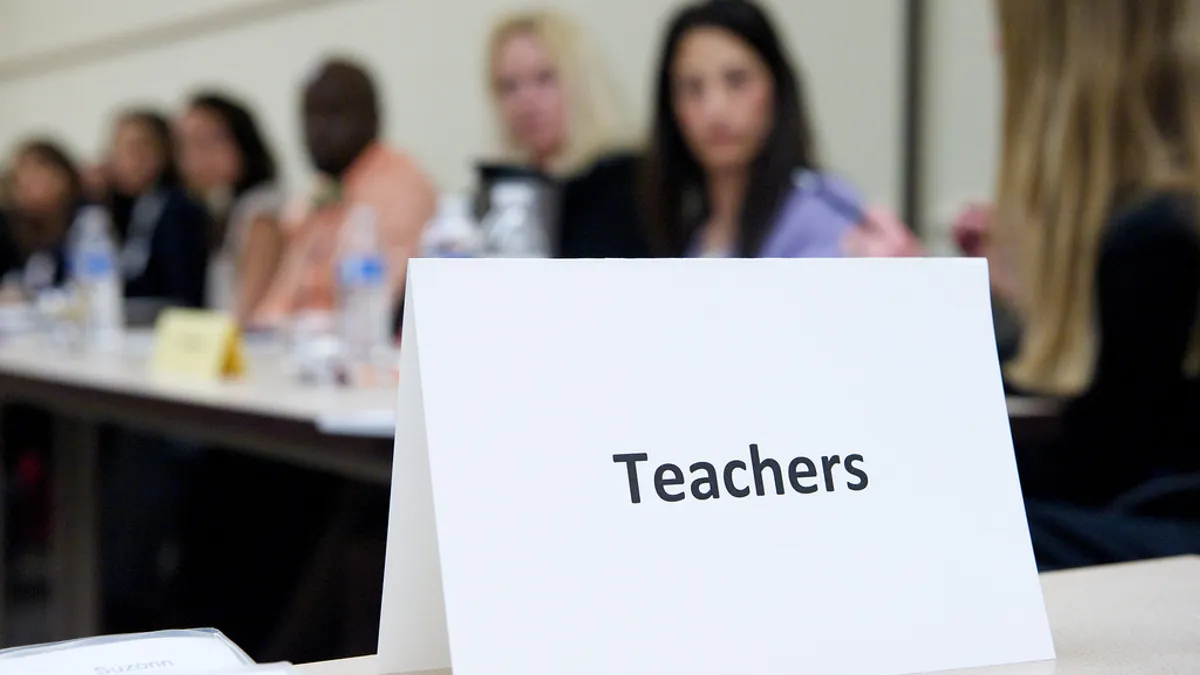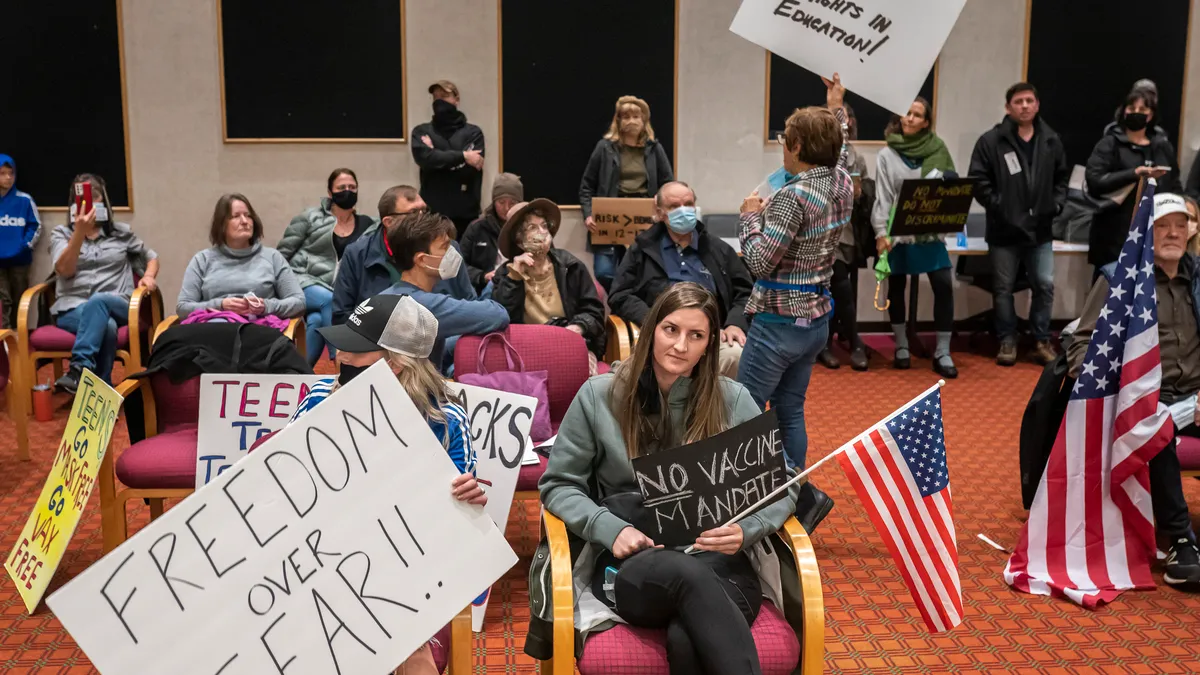Dive Brief:
-
A recent survey conducted by Indiana State University collected the reflections of administrators in the state on factors contributing to an ongoing teacher shortage, Chalkbeat reports.
-
Subpar salaries, unqualified candidates, untenable job demands and a lack of governmental support for the profession are a few of the issues administrators cited as contributing to the shortage.
-
When Indiana State University surveyed districts in the state about teacher shortages, 91% of the 220 districts that responded reported that they were experiencing a shortage, and 85% reported that they applied for an emergency permit to hire people without a teaching license or people who have a license but from outside of the subject they had been asked to teach.
Dive Insight:
While the reasons for shortages varied in the opinions of all administrators surveyed, the vast majority quoted by Chalkbeat focused on pay. As detailed earlier this week, the fight for better teacher pay in Indiana is in full-swing.
During the ceremonial first day of the legislative session last week, it was announced that the state's teacher union, Republican leaders and education advocacy groups were working to guarantee that teacher raises would be included in the state’s upcoming two-year budget.
The convergence of these odd bedfellows ultimately boils down to what happens when teachers anywhere are underpaid: struggles to recruit and retain high-quality educators.
In Indiana, for example, shortages led the state’s school board to attempt to address the issue in 2014 by creating an adjunct/career specialist teacher license that required no teacher training. The program was widely blasted by ed groups over concerns about de-professionalizing teaching and further undermining the field.
Getting lawmakers to fiscally support schools can be difficult. According to a 2017 analysis by the Center on Budget and Policy Priorities, 29 states provided less overall funding per student in the 2015 school year than in the 2008 school year. However, a stream of walkouts last school year has reignited the fight and yielded results.
“Responding to recent teacher protests, West Virginia lawmakers eventually agreed to increase salaries by 5 percent. Oklahoma lawmakers increased teachers’ annual pay by $6,100, though the teachers had hoped for a significant increase in total education spending. And, in May, Arizona lawmakers gave striking teachers a 20 percent pay increase over three years, ending a six-day walkout,” a report from the National Conference of State Legislatures explained this summer.
Indiana did not experience walkouts, so the move to push for better pay — pre-protest — could be a sign of a spillover effect and a desire to implement good policy without a fight that could hurt students. The disruption of teacher strikes can be very difficult for students, especially those who are struggling academically.







 Dive Awards
Dive Awards





